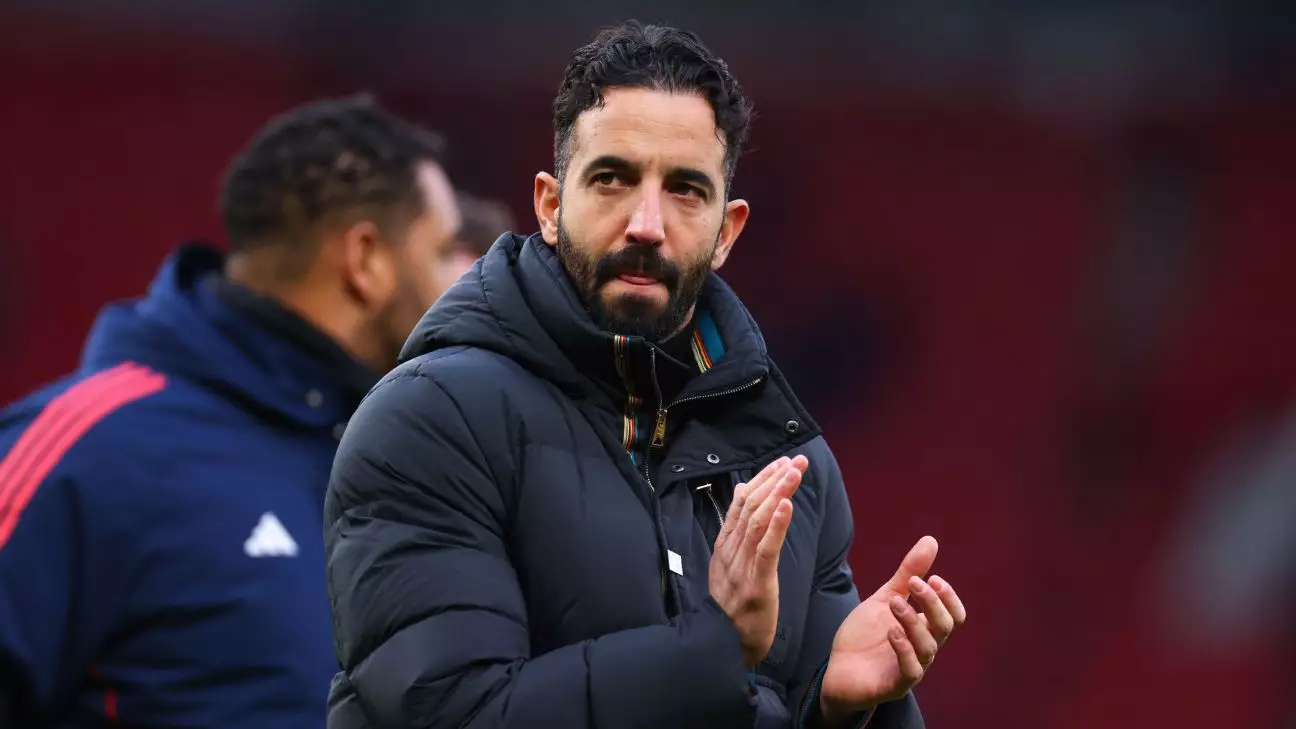The struggles at Manchester United extend beyond the pitch, as the club navigates a precarious financial landscape resulting in significant job losses. With a staggering £300 million in losses over the past three years and the club’s current dismal position in the league standings, the mounting pressures demand immediate solutions. New head coach Ruben Amorim has publicly acknowledged the responsibility that he and the players bear in this situation, recognizing the need for improvement not merely in the team’s performance, but also in the culture and environment surrounding the club.
The heart of Manchester United’s issues lies in a combination of disappointing on-field results and escalating operational costs. Having recorded significant financial losses, the club is faced with a structural necessity: to significantly cut costs while attempting to maintain competitive standards. The recent redundancy of 250 employees signifies a troubling trend, one which has not only affected those who lost their jobs but has also eroded the morale of the remaining staff and fans. It serves as a stark reminder that a club’s success on the field is inherently tied to its operational health off it.
The scrutiny on Manchester United’s financial viability is paramount. The club’s inability to secure a place in the Champions League for the coming seasons directly correlates to declining revenues. This cyclical relationship between performance and finance creates a quagmire: the less successful the team, the more precarious the financial state, leading to further cutbacks that stymie potential recovery efforts. Amorim’s assertion that the “biggest problem is the football team” encapsulates this dilemma, illustrating that the team’s performance directly influences its fiscal health.
Ruben Amorim’s candid acknowledgment of the team’s role in the current crisis is a refreshing take in an environment where blame often shifts or becomes diluted. By emphasizing accountability, Amorim suggests a more profound connection between player performance and the club’s broader impact. The job losses create a personal stake for the first team, making the players acutely aware of the ramifications of their performance. He posits that the morale of the club is affected when staff face job insecurity, which in turn impacts the work environment – a condition that could potentially hinder performance further.
The weight of accountability does not solely rest on the players, however. It extends to the coaching staff and club leadership as well. Amorim’s challenge to the first team reflects a call to action that goes beyond just results; it requires a collective effort to restore faith in the institution. His remarks highlight the importance of unity within the ranks, confronting the dire realities that are precipitated by underperformance.
To pivot from its current predicament, Manchester United, under Amorim’s leadership, must focus on tangible results as immediate corrective measures. Winning against Tottenham Hotspur, as stated by Amorim, symbolizes a critical initial step in reigniting hope among fans and staff. Victorious outcomes can serve to galvanize support and foster a renewed sense of resilience throughout the organization.
Furthermore, the club’s communication with its fanbase, particularly concerning tough decisions regarding ticket prices, is crucial. By being transparent about the challenges faced by the club, management fosters a stronger connection with supporters, who are essential stakeholders in any recovery plan. If fans are to continue to invest their loyalty and financial resources, they must understand the rationale behind the club’s choices, even as difficult and unpopular as they may be.
While immediate wins are critical, a long-term strategy is fundamental to establishing lasting results. The restructuring of the team, scouting for new talent, and investing in youth development should be prioritized to ensure sustainable growth. Addressing the existing infrastructure to better support player development and operational efficiency could help mitigate future financial risks.
As Manchester United strives to regain its stature in both the Premier League and the wider footballing landscape, the dual focus on improving player performance while navigating financial intricacies will be crucial. Whether Amorim can successfully lead this charge remains to be seen, but his insights into the dynamics of responsibility and accountability could prove to be the catalyst for a much-needed revival at the institution. Ultimately, it is through this confluence of performance and prudent management that Manchester United can aspire to overcome its present challenges and reclaim its rightful place among football’s elite.
